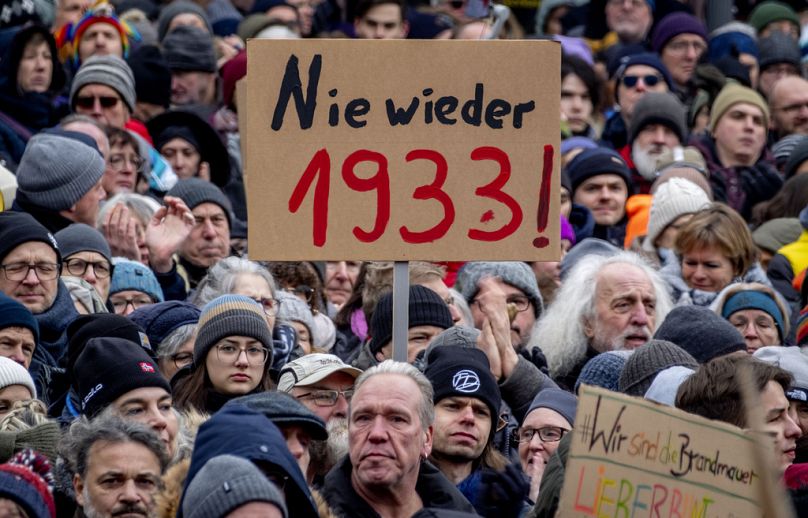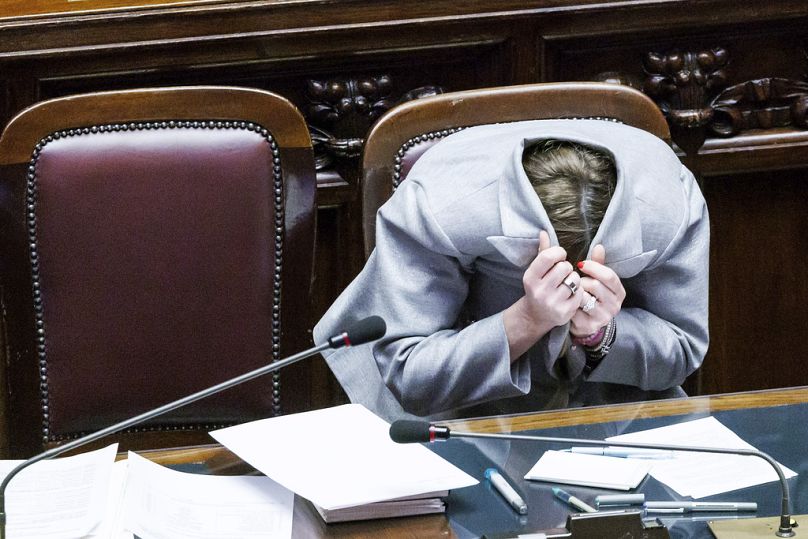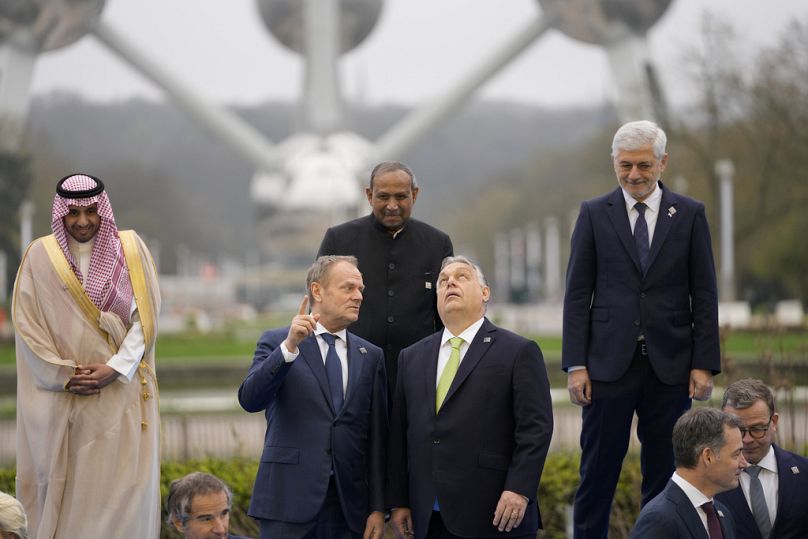Fear as a campaign card is getting weaker with every election. To mobilise their voters, pro-European parties will instead need to inspire with a clear and tangible vision of a strong and united Europe, Pawel Zerka writes.
Following the news has become a painful experience for progressives in Europe.
 ADVERTISEMENT
ADVERTISEMENT
 ADVERTISEMENT
ADVERTISEMENT
Ukraine is stuttering in its war with Russia. Donald Trump appears to be on his way back to the White House.
And anti-European parties are performing well in opinion polls ahead of this year’s European Parliament elections — which are now just 80 days away.
European citizens cannot do much to influence the result of the presidential election in the US, or developments on the battlefield in Ukraine.
Still, June’s elections across the EU-27 offer a rare opportunity for them to have an impact. The main question is whether they will bother.
Anti-Europeans are lining up to vote
Historically, these elections have struggled to attract the interest of voters. In 2019, only one in two voters participated, and in three countries (Czechia, Slovakia, Croatia) turnout was below 30%.
This lack of interest is often explained by a widespread public perception that European Parliament elections are inconsequential.
But, this year, there is one crucial difference.
In several countries, voters of anti-European parties (who, in the past, used to care rather little about Europe) are strongly mobilised — at least as much as electorates of their pro-European competitors, if not more.
For example, according to ECFR’s latest public opinion survey, 71% of Alternative for Germany (AfD) supporters say they will "definitely" vote in the EP elections — compared to 64% among CDU/CSU voters.
In France and Austria, this polling also suggests that supporters of the main anti-European parties (Rassemblement National and Freedom Party) are as mobilised as their direct rivals (LREM and ÖVP, respectively).
'Detoxify to win' seems to be the way to go
Additionally, many voters of anti-European parties seem to recognise the high stakes of this year’s elections.
When asked how much the results will affect their future, 58%of AfD voters responded "a great deal" or "a fair amount", compared to 52% among those allied to the CDU/CSU. The situation is similar in Sweden with 49% of Sweden Democrats voters stating that the results will be significant, compared to 36% of Moderates.
The uncertain mobilisation of mainstream voters in several countries may be explained, in part, by their rivals’ success in "detoxifying" themselves.
Hardly anyone now believes that Italian Prime Minister Giorgia Meloni wants Italy to leave the EU or the eurozone, despite fears ahead of her party’s election win in 2022.
Sweden Democrats' backing for the country’s government may have normalised the party’s motives in the eyes of many voters.
Even Marine Le Pen has managed to improve her own — as well as her party’s — image. So much so that she is seen as the frontrunner for the 2027 French presidential elections.
As a result, pro-European parties are struggling to make a convincing case about the need to save Europe from the far-right.
Negativity is fueling the shift to the right
The diverging mobilisation between the pro and anti-European parties may stem from the radically differing moods of their voters.
In contrast to the energy of the far-right, who — in several countries — may feel the momentum is on their side, many progressives are disillusioned with the performance of their mainstream national governments, exhausted by numerous crises that have rocked the EU in recent years, and may even feel that a shift to the right is inevitable.
It is telling, also, that even on issues of wealth and security, which have underpinned liberal democracy since the end of the Cold War, voters are feeling a greater state of negativity.
Together, this stands to benefit anti-Europeans, and their calls for change, rather than rallying citizens to the centre.
Yet, one country serves as a powerful exception to this: Poland. Voters allied with the Civic Coalition (KO), led by Donald Tusk, are clearly more mobilised ahead of June than those of their anti-European rival, the Law and Justice, or PiS party — with 73% of KO’s voters, compared to 61% for PiS, saying that they will “definitely” vote in the European Parliament elections, according to our poll.
In the build-up to the national elections in October last year, KO put great efforts into convincing progressive voters that removing PiS from power was possible. Their positive vision (alongside the annoyance with PiS) galvanised supporters into action, and, at the polls, they made the change happen.
Although Poland stands out as an outlier in Europe — as a country where pro-Europeans are enjoying momentum — it does offer valuable insight into the importance of voter confidence.
If they want to win, progressives need to change the mood
In the past, a growing convergence of policies and narratives of the European mainstream, regardless of their political leaning, allowed previously marginal or non-existent anti-European parties — including the AfD, Rassemblement National, Sweden Democrats, PVV, Vox, or Chega — to pose as the only authentic alternatives in town.
The more the latter succeeded in attracting new voters, the more they seem to have engendered a sense of the inevitable among progressives. A key challenge, for pro-Europeans, today, will be turning the tide of this mood.
Scaring pro-European voters by invoking a vision of life under the far right may help pro-Europeans in some countries — including Germany and Spain — but it will be not enough to overcome apathy. Fear as a campaign card is getting weaker with every election.
To mobilise their voters, pro-European parties will instead need to inspire with a clear and tangible vision of a strong and united Europe.
They will need to ignite a new sense of confidence in Europe and liberal democracy — while also making a convincing case as to why the results of this election will matter for their voters’ future.
If they manage to do this in June, they may help to dispel some of the gloom not only in Europe, but in the US and Ukraine.
Pawel Zerka is Senior Policy Fellow at the European Council on Foreign Relations (ECFR).
At Euronews, we believe all views matter. Contact us at view@euronews.com to send pitches or submissions and be part of the conversation.













